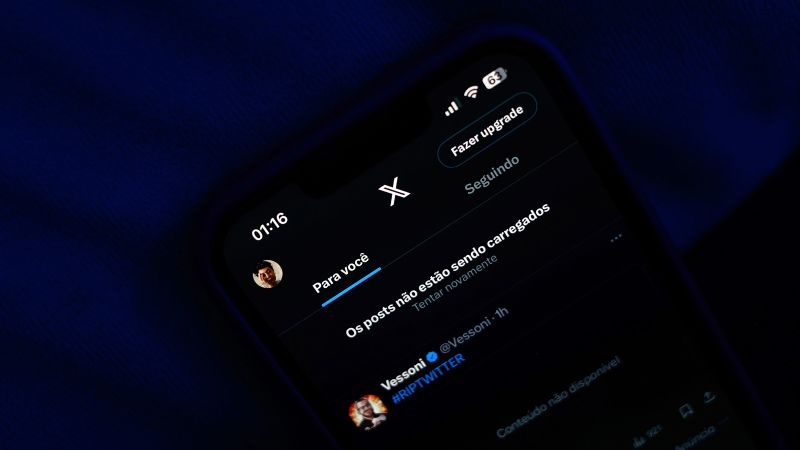Brazil recently enforced a court-ordered suspension of Elon Musk’s social media site, previously known as Twitter, resulting in Brazilians being unable to access the platform. This decision came after Musk refused to name a legal representative in the country, as required by Brazilian law. The Supreme Court had ordered the suspension due to X not complying with court orders to block users and shut down its Brazilian representative office. This decision is part of Brazil’s investigation into the spread of misinformation and hate speech online.
The feud between Musk and Brazil escalated when the Supreme Court warned Musk that X would be blocked until it complies with the order to name a legal representative. Musk criticized the actions of Justice Alexandre de Moraes, accusing him of limiting free speech in the country. President Luiz Inácio Lula da Silva emphasized the need for Musk to comply with Brazilian laws, stating that anyone with investments in Brazil must adhere to the country’s rules. The Supreme Court also denied an appeal by Starlink, another company owned by Musk, resulting in the freeze of its financial accounts in the country.
These legal disputes have impacted Starlink, an internet service provider owned by Musk, which saw its financial accounts blocked in Brazil. The company argued that it should not be responsible for fines imposed on X and expressed concerns about its ability to conduct financial transactions in the country. Musk announced that Starlink’s service would remain active for free due to the judicial order preventing them from receiving payments. X, which has a significant user base in Brazil, has faced issues with advertisers since Musk’s acquisition and has shut down accounts linked to right-wing political figures in the country.
Musk’s characterization of the actions against X as censorship has been supported by Brazil’s political right, while de Moraes’s defenders argue that his actions are legal and aimed at protecting democracy. The dispute highlights the broader issues around free speech, misinformation, and the role of social media companies in Brazil. Meanwhile, the financial implications on Starlink, which is widely used in remote regions of Brazil, have raised concerns about access to internet services in those areas. The ongoing legal battles between Musk’s companies and Brazil’s Supreme Court underscore the challenges faced by multinational corporations operating in different jurisdictions.


